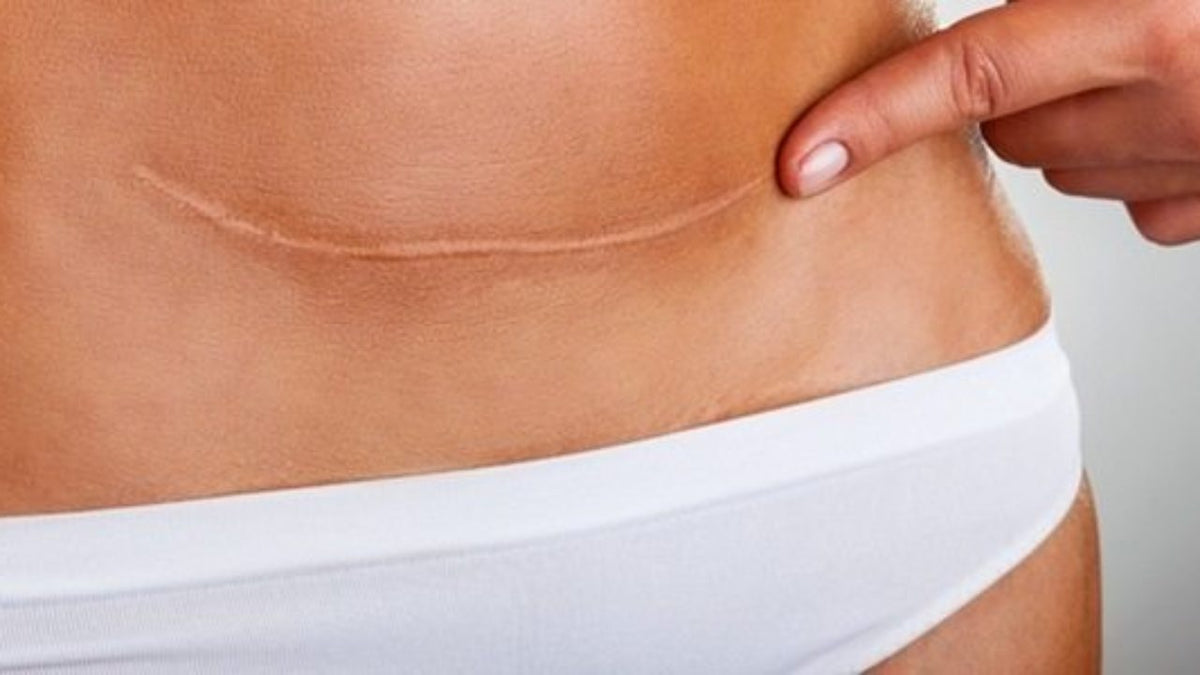08th March 2021
The 5 Best Vitamins To Reduce a Tummy Tuck Scar
Dr. Devan Patel, PharmD
Abdominoplasty or simply known as tummy tucks are considered one of the most common plastic surgeries performed in the U.S. The plastic surgeon's goal is to remove excess skin and tissue in the abdominal area, while leaving a minimal scar.
Your physician will give you discharge instructions to minimize scarring. Regardless of the size of your surgery, you will be left with an incision and your aftercare is super important. Most physicians initially use surgical glue, steri strips or paper tape at the time of surgery. They may transition you to a scar removal cream or silicone gel after 2-3 weeks to minimize scarring. Getting proper rest and keeping your incision area clean to prevent an infection are super critical to prevent scarring.
Keep in mind that scaring is normal, and it will take several months after surgery to help your scar heal. Let’s learn more about the top 5 vitamins to help reduce a tummy tuck scar and accelerate healing time after a tummy tuck (abdominoplasty).
Below, are the 5 best vitamins to potentially help reduce a tummy tuck scar.*
Vitamin A
Vitamin A is an essential vitamin not only helping with vision but also helping our bodies with wound healing, as mentioned earlier. It is a fat-soluble micronutrient that can reverse the hindrance of wound healing. This is done by preventing the enzyme, called collagenase, from synthesizing. By doing so, this can ultimately help skin heal better and faster than normal. If collagenases were allowed to synthesize during a period of skin injury, they would break peptide bonds in collagen, which would slow down tissue healing.
Vitamin B Complex
Vitamin B complex is made from multiple water-soluble vitamins; this is also more than just one B vitamin, because there are many different forms of Vitamin B. B1 is known as thiamine used for energy production in our metabolisms. B2 is known as riboflavin and acts as an antioxidant. B3 is known as niacin and helps with cholesterol production and DNA repair. B5 is known as pantothenic acid is also helpful with cholesterol production and energy production in our metabolism.
B6 is known as pyridoxine which is helpful for DNA repair and creation of neurotransmitters. B7 is known as biotin which can help metabolism as well as skin; hair; and nail growth. B9 is known as folate needed for cell growth and DNA repair. And B12 is known as cyanocobalamin is helpful with brain function and DNA production. Overall, vitamin B complexes can aid in cell growth, immune health, and especially wound healing according to one study that was made with a Vitamin B complex supplementation. However, we can always use more research to make things more definite.
Vitamin C
Vitamin C is also another water-soluble vitamin, like the B vitamin complex. It can work as an antioxidant and can also help in collagen synthesis. It does so with enzymes that are helpful in the proliferation of many amino acids that are primarily found in collagen, such as: proline, glycine, lysine, and hydroxyproline.
This is not the only role of vitamin C, it can also help in the homeostasis of the epidermis; metabolism, and carnitine synthesis. One study showed the effects smoking had on collagen metabolism with smokers, showing that, when compared to non-smokers, they had lower levels of vitamin C and supplementation could improve wound healing.
Vitamin D
Vitamin D is a fat-soluble micronutrient that we can absorb from sunlight, and also get through the food we consume. Now, for the most part, vitamin D is used to improve overall bone health, neuromuscular function, and immunity, however they can also be very helpful when it comes to improving wound healing as well.
A randomized, double-blinded, placebo-controlled trial was done that showed that patients with diabetic foot ulcers had improved glucose homeostasis, which indirectly improved the healing of the ulcers. Another study found that the application of calcitriol, which is a man-made version of vitamin D, helps significantly with people experiencing psoriasis. This is due to the high importance of vitamin D when it comes to skin health and the creation of healthy skin.
Bromelain
Bromelain is found in nature in many foods such as pineapple. It’s a proteolytic enzymes can effectively "digest" scar tissue” and help with reducing tummy tuck scarring. In a study bromelain is evaluated as a novel agent for preventing intra-abdominal adhesions.
Bromelain has been shown to clean tissues without causing further damage. This may increase oxygen levels and nutrient flow and ultimately support scar and wound healing.
Besides pineapple, other good sources of bromelain are kiwi’s, ginger, asparagus and various fermented products like kimchi and kefir.
The 5 best vitamins for a tummy tuck scar: Summary
For the most part, vitamins and minerals are safe to consume over the counter when following the FDA label guidelines. It is always best to refer back to the physician to ensure there are no contraindications and get the most optimal results. Vitamins A, B, C, D, and bromelain are all important essential vitamins and herbs to support a healthy immune system and promote optimal scar healing.* All these micronutrients, if needed, can be found in simple to use WoundVite supplement.
* These statements have not been evaluated by the Food and Drug Administration. These products are not intended to diagnose, treat, cure or prevent any disease.


